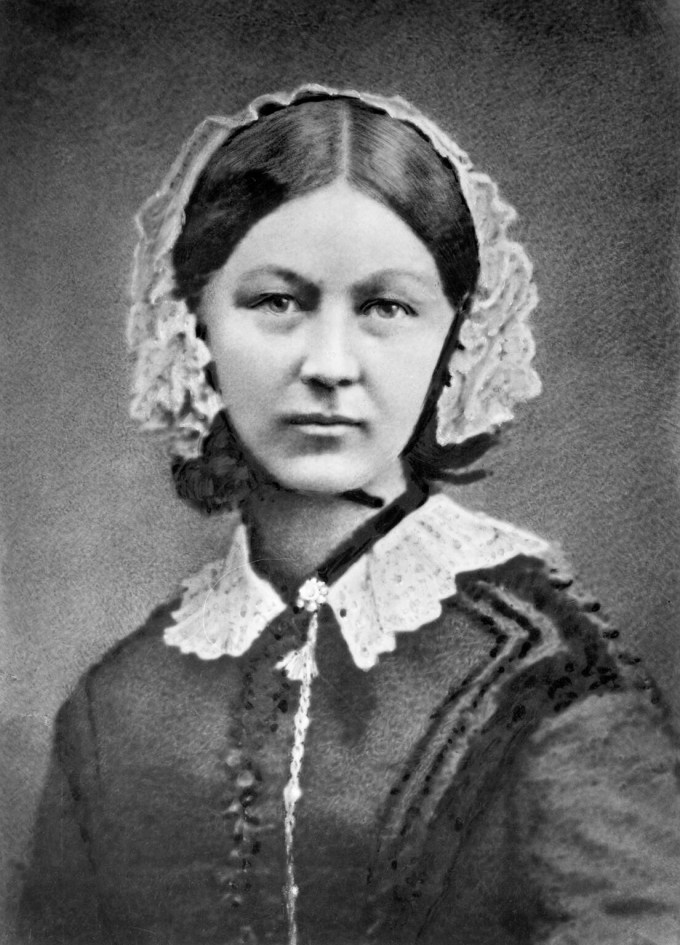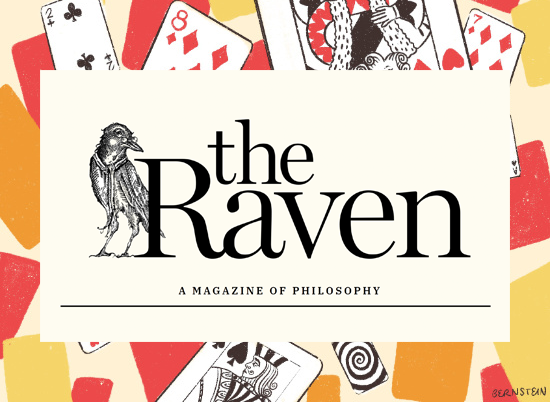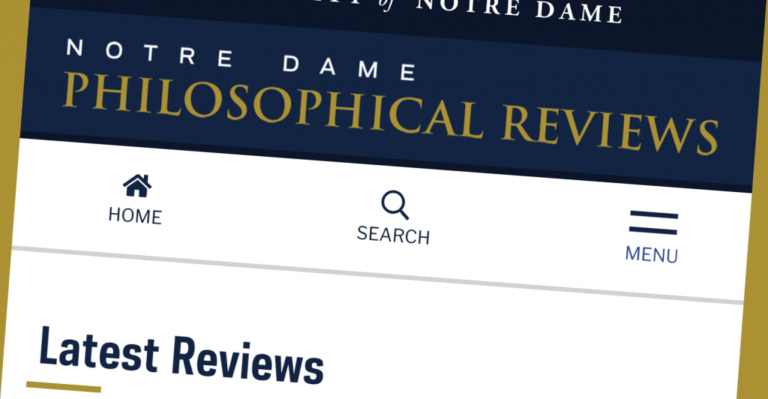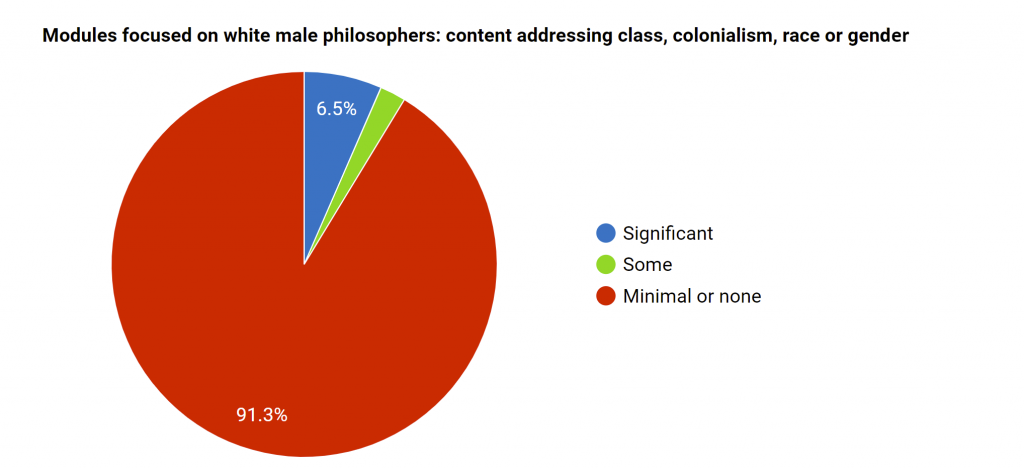
Again, recognizing that the official topic of a module might not be reflective of its content, the researchers looked at what was taught in these modules, and again, they found that around 90% of the courses had “minimal or no” content addressing class, colonialism, race, or gender.
For more details about this research, see the report here.
- Feminist Philosophy (by Anne-Marie McCallion, funded by AHRC)
- Native North American Ethics (by Sonja Dobroski and Quentin Pharr)
- Philosopher Queens: Women in Philosophy and the History of Exclusion (by Rebecca Buxton, with thanks to Alix Dietzel)
- Sex, What is it Good For? (by Emma Holmes, David MacDonald, Yichi Zhang, and Samuel Dando-Moore, funded by The School of Philosophical, Anthropological and Film Studies, University of St Andrews)
- The Wartime Quartet (by Ellie Robson, Sasha Lawson-Frost, Amber Donovan, Anne-Marie McCallion, with special thanks to Clare MacCumhail and Rachael Wiseman)
- Postcolonial Theory, Race and Caste (by Suddha Guharoy and Andreas Sorger, funded by AHRC)
- African Languages and African Philosophy (by Sara Peppe and Björn Freter)
- Reclaiming the System: New Visions for a Future of Work (by Deryn Mair Thomas, funded by The Future of Work and Income Research Network and The Centre for Ethics, Philosophy and Public Affairs)
- Race, Disability, and Gender in Bioethics (by Chris Blake-Turner)
You can check them out here. More are in the works.
Reading Group Blueprints are now available from the Diversity Reading List in Philosophy (DRL). They include thoughtfully selected and arranged readings, videos, and podcasts, accompanied by comments and questions to guide the participants. And it is all freely available.
Aware that “the main topic of a module might not be always indicative of its content,” the researchers looked at what was taught in courses not explicitly dedicated to “Class, Colonialism, Race, and Gender” to see how much time/materials were spent on any of those topics. 3% had “significant” content on these topics, 7.6% had “some,” but 89.4% had “minimal or none.”
First, very few of the courses are dedicated to topics on “Class, Colonialism, Race, and Gender” (3.1%) or “World Philosophies” (3.8%).
One might wonder: why these specific topics? The answer is that these are topics that are not especially well-covered. The DRL is based in the UK, and they looked into what is and is not typically taught in philosophy curricula there. Anne-Marie McCallion (University of Manchester), with the help of Simon Fokt (HTW Berlin) and other members of the DRL Team, went through 377 modules taught at the top 10 British departments (according to Times Higher Ed), and here’s what they found.
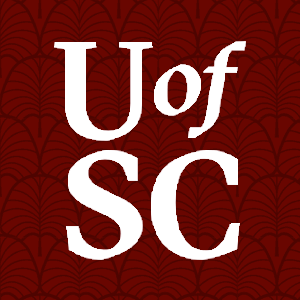
Students and others may be interested in a philosophical topic, yet not have access to a course on it. One option is for them to form a reading group, but it’s not always easy to figure out what to read, in what order, what to pay attention to in the readings, what questions to discuss, and so on. Now there’s a new resource that provides “blueprints” for readings groups on a range of topics, focusing on ones not especially well-covered by universities.
46 of the 377 modules analysed were on individual thinkers. How diverse an array of thinkers?
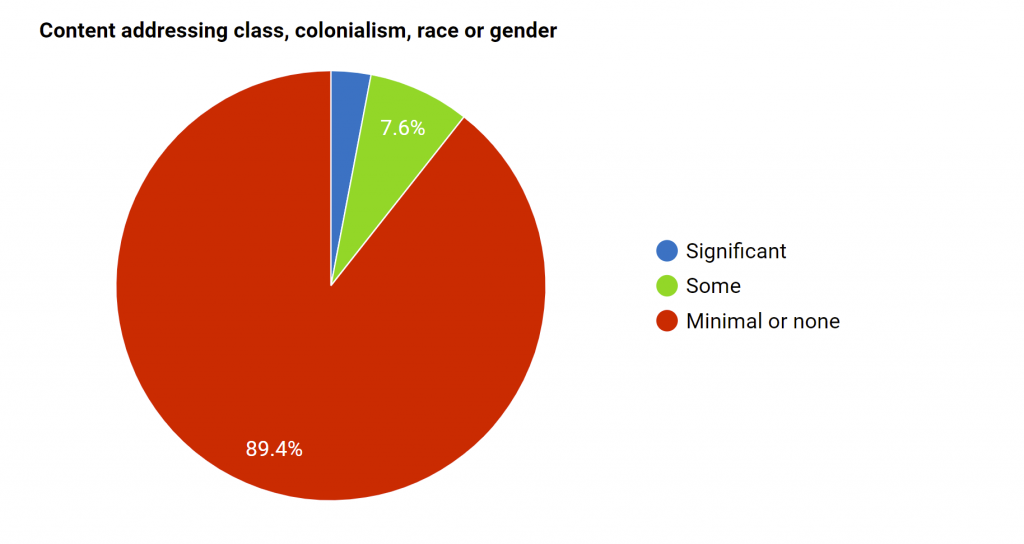
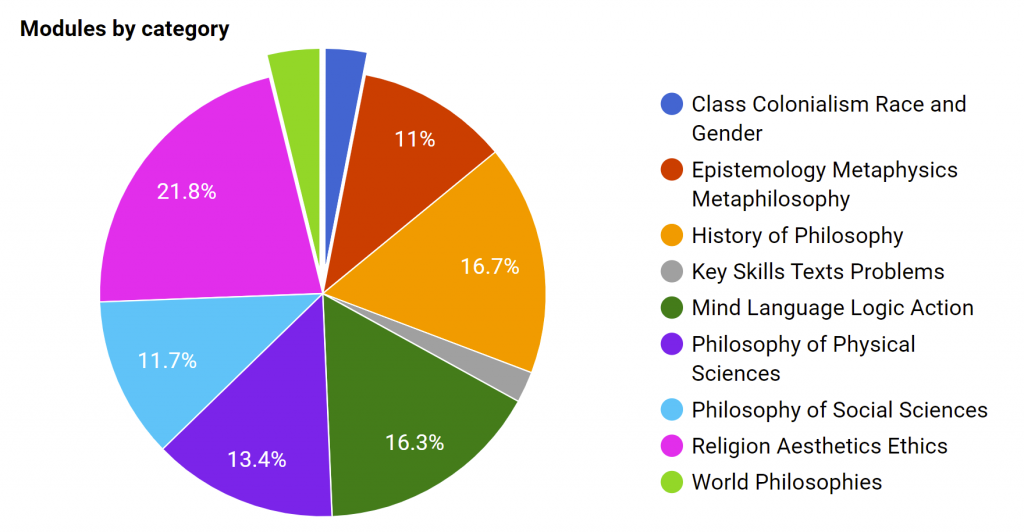
So far, there are blueprints for the following topics:
Whoa.
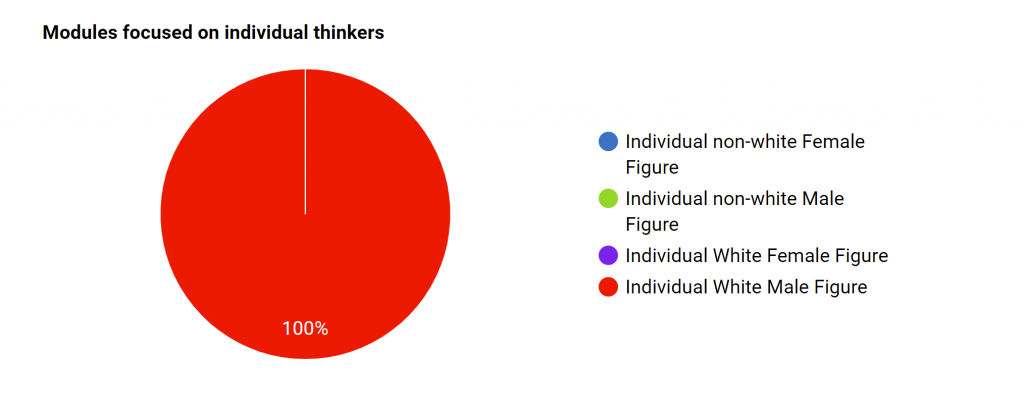
It would be interesting for similar research to be conducted in the United States and elsewhere.

